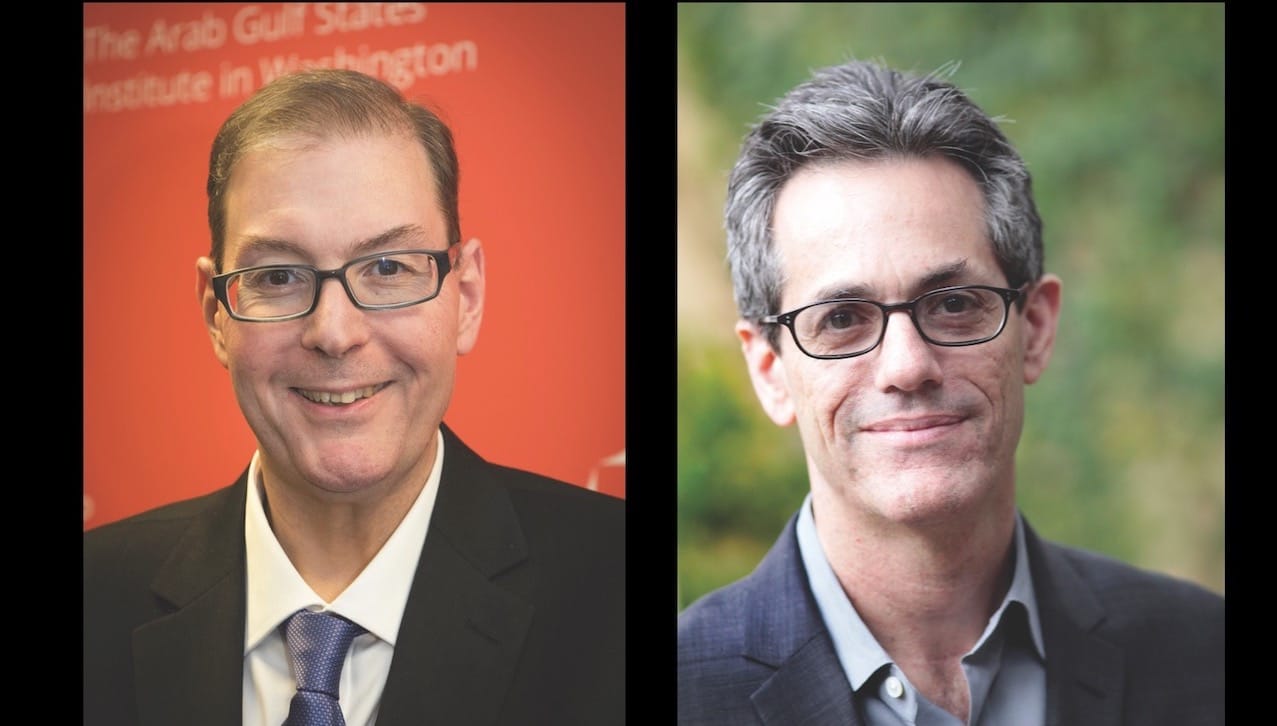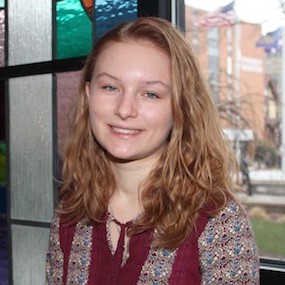Seminar Explores Israel-Palestine Conflict

Hussein Ibish, Ph.D., senior resident scholar at the Arab Gulf States Institute in Washington, D.C., and David N. Myers, Ph.D., Sady and Ludwig Kahn Professor of Jewish History at UCLA and president of the New Israel Fund, contextualized the Israel-Palestine conflict at a Schemel Forum World Affairs Luncheon Seminar. The presentation took place on campus March 1, less than a day after Israeli Prime Minister Benjamin Netanyahu’s indictments made international news.
Dr. Myer and Dr. Ibish took turns explaining the past, present and future of Israel and Palestine’s conflicts, with Dr. Myers focusing on Israel and Dr. Ibish focusing on Palestine.
Issues Israel faces today include, Dr. Myer said, the corruption of Netanyahu. For example, the prime minister spent government money on cases of very expensive cigars. Though Netanyahu had called for an early election, the announcement of his indictments 39 days before the early election caused the political Right in Israel’s government to accuse the Left of subverting the election. Other political parties are now poised to take Netanyahu’s spot, if he loses the election or resigns.
Palestine does not face issues such as these, Dr. Ibish said, because its leaders generally rule by force. While controlling of its citizens’ freedom and other aspects of their lives, the Palestine government does not take much responsibility for the safety and health of their citizen, such as providing access to clean drinking water.
“There is zero accountability,” Dr. Ibish said. “In the West Bank, what you have is a polity which began with some promise in the 90s, but that has been worn down. Worn down by unaccountability, worn down by corruption, worn down by the manipulation by the government of the legal system.”
Like Israel, Dr. Ibish said, Palestine faces conflicts both internal and external. Many people are concerned about Palestine going forward, seeing it as a ticking time bomb. Since the fall of Aleppo, the Arab world has changed, and Israel fixates on whatever the Arab world fixates on. For Israel, the future is murky but now has more room for change than ever, due to a potential shift in dominant political party.
“Perhaps the sole constant in history is the persistence of change,” Dr. Myer said. “Just when we thought change was impossible on the Israeli front, the past 24 hours […] have delivered very ample doses of change.”
The Schemel Forum World Affairs Luncheon Seminar series is sponsored by Munley Law.
For more information on the Schemel Forum, please contact Sondra Myers, director of the Schemel Forum, at 570-941-4089, or at Sondra.myers@scranton.edu.







